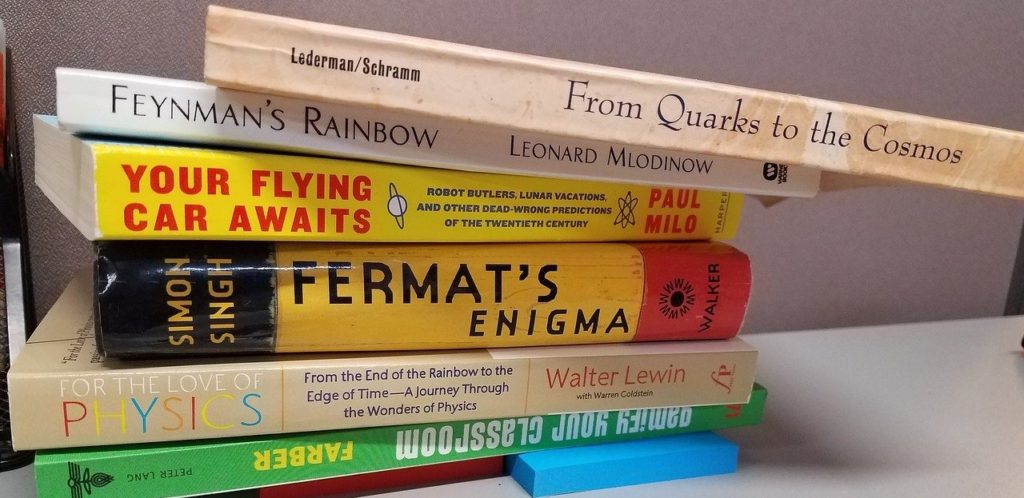I did well in school. I was a straight-A student in high school and college. I have a Bachelor’s degree in Chemistry and two Master’s degrees, so I wasn’t taking easy coursework. I worked hard and I have a good memory, so those traits worked to my advantage. But when people say that I must be really smart I always tell them the same thing.
I test well.
Oftentimes quizzes and exams are the largest portions of points awarded in a course. Thus, performing well during an assessment typically has the largest impact on your final grade – more than homework assignments and projects.
Assessments are designed as an opportunity to prove to your professor or instructor that you have mastered the material, but quite often, an exam is not a great judge. All-night cramming may get you a decent score, but you won’t remember much by the time the test is graded. In contrast, I’ve been in study groups with people that have clearly known their stuff backward and forward, but test anxiety hits them hard, and they bomb the exam.
Bottom line – you can master the material and fail; you can pass without knowing squat.
Important note: This is not an article of study tips. This is an article of test-taking tips. These tips are designed to maximize your score with the knowledge you have going in. The more familiar you are with the material, the better off you will be in any course. And don’t forget, the point of a course is to learn, not to pass. Take advantage of the opportunity to gain knowledge!
I was never given test tips that were particularly helpful, nor did I spend time evaluating why I did well on tests. But in hindsight, I recognize the strategies that worked for me, whether I was well-studied or not.
Here I present the test-taking steps that have always gotten me a good/great score. They should absolutely be performed in order. I highly recommend you try this strategy on your next test.
1. Think strategically
Strategic thinking is helpful to combat anxiety as much as anything else. The test-taking system that allows you to relax is the one that allows you to perform. You don’t have to get every point. You don’t need to be embarrassed if you get something wrong. The name of the game is strategy. The goal is to maximize your points. Period.
This is important: Do your best to stay calm. The calmer you feel the better you will do. When you have a relaxed mind coupled with test adrenalin, you’ll be surprised by the information you retrieve from your memory coffers.
You will reduce anxiety and build confidence by tackling the easiest problems first.
The only time you should answer the questions in the order they are given is if the test is too easy for you.
What if the first problem on the test is the hardest? You attack it first, get stuck, start to panic, your mind goes blank, and you’re sunk. You could bomb the whole test when that may have been the only problem you didn’t know.

Always take a test with a series of passes through the exam. The first pass is for all the problems you are 98% sure you know. On the second pass, do the problems you are about 50% sure of. The problems that remain should be worked in order from your highest to lowest confidence.
2. Take the first pass through the test – the 98% pass
Answer all the questions you know and/or do the problems you know how to do.
Some tipsters will tell you to read through the test before you start. This is a waste of time if followed literally. The first pass is the time to read through the test the first time. As you go, answer all the questions, and/or do all the problems that you immediately know or know how to do.
This is a fast pass. If a problem is going to be time-consuming, even if you’re sure of how to do it, save it for the next pass.
After the first pass, take a deep breath. You can assume all the questions you have answered thus far are right or mostly right.
If you have answered many of the questions already, and felt decent about the ones you skipped over, you are in excellent shape for this test. You’re cruising.
If that’s not the case, don’t panic. This is war. Maximize.
Move on to the next pass-through.
3. Take the second pass – the 50% pass
Answer the questions you think you know and/or do the problems you think you know how to do.
If you have what you consider to be a “good guess” or if you have a reasonable idea of how to tackle a problem, now is the time. This is also the time to do any time-consuming problems you know how to work but skipped in the first pass.
If you were well prepared for this test, you are nearly done now. If not, there is still a lot of test left. The important thing to acknowledge is this:
You can assume you have achieved most, if not all, of the points from your first pass, and probably about 75% of the points from your second pass. Check yourself now. You can probably assume you already have a decent number of points. Take a moment to relax again.
4. Make a quick mental note of the time remaining
Your remaining time will be split into two parts.
At this point, you have problems left that you’re not sure about. You also have a certain amount of remaining time. This is where high-impact strategy kicks in.
Some of the remaining time will be spent on attempting to work out more problems. The rest of the time will be spent on trying to scrape up some partial-credit points. It will be up to you to determine the best use of your time to maximize points.

I’ll explain both in detail.
5. Attempt the remaining problems
The remaining problems are those you did not have at least 50% confidence in. You may be at a complete loss. Work these problems starting with the one you have the best idea about tackling, even if it’s just an inkling.
Get started with it and get as far as you can. If you are relaxed and in the zone with your mind firing and adrenaline pumping, you might be surprised by what comes to you in the moment. If you get stuck and aren’t sure where to go with it, move on to another problem.
Do not erase!
Leave all of your work. Never underestimate the power of partial credit. Nor should you disempower the teacher to offer you points at their discretion.
Having taken many, many different classes and having taught courses myself, I can tell you it is a rare professor who doesn’t award partial credit. Most professors will recognize that if an entire class misses a problem, they may not have taught the concept well. Oftentimes, they will compare the classes’ answers against each other. If you got closer to the correct answer than the rest of the class, you just may get the points.
6. Scrape up as much partial credit as you can get
This may be the last few minutes of the test. Or maybe you have reached a point where you can’t make any more headway on the remaining problems. Your goal now is to get every last point you can possibly get.
Try to write something down for each and every problem. Something. Anything related and coherent. Do you remember a formula, or a piece of a formula? How about a name, or can you guess at a year? Any note or memory, write it down. Don’t be embarrassed, take a stab. It could be the difference between a pass and a fail.
I once got HALF CREDIT for chicken scratch in the margins I made trying to recall a formula. Like I said, erase nothing.
Here is a powerful trick I always use once I am no longer confident about my answers:
You would be surprised how many times OTHER QUESTIONS on the test provide clues to the questions you are trying to answer. Glance through the questions and glean what you can use.
For example, perhaps a question asks you to name who the object of Catherine’s affection was in Wuthering Heights. If you don’t recall, you may notice another Wuthering Heights-related question on the test that either provides a clue, jogs your memory, or straight-up answers the question for you. (ie, When Catherine and Heathcliff professed their love to one another…)
Maybe one of the problems provides a formula. Could it be the same formula used on other problems? If you think it might be, go for it. Make the attempt. If you only have time to write the formula, then do that.
You get the idea. You’re grappling now. Just go for it. Take a shot at everything.
7. Turn it in
Once you turn it in, you’re done. Act like it. Don’t panic. Don’t fret. Don’t ask your classmates what they got and lose sleep over your answers. It’s over.
Think back to how you felt in that moment after your second pass through the test. You had answered all the questions you had a good idea about. How did you feel then? That’s how you should feel about the test now. That’s probably a pretty accurate assessment of how you did on the test.
Some final bits of advice
Two things I NEVER do. Never ever.
1. I never review material right before a test.
It is common for people to do one last quick review before the test begins. You often see students in the classroom with their notebooks out taking one last pass over their notes.
If this relaxes you and makes you feel more prepared, then go for it. But for me, this last-minute review only serves to make me nervous. When I try to remember something, I think I have forgotten it, then I think I have forgotten everything, then I start to panic. The exercise doesn’t serve me. It’s detrimental, in fact.
So, if you are anything like me, I strongly recommend you DO NOT do any sort of review just before the test. If possible, don’t review on that day at all. If your classmates are talking about and studying the material out loud shortly before the test, put in your earbuds or move out of earshot.
This is a time to ease your mind into a state that will allow for maximum information retrieval. If you studied, it’s in there. Trust that you will access it.
2. I never change my first pass-through answers
Truth be told, I don’t like to change any of my first-instinct answers. They are almost always the better answers than those I come up with after doubting myself.
Remember that your first pass through was the fast pass – the questions and problems you were confident about. Don’t start to question yourself now. You were probably right the first time. Leave it alone.
If I’m being honest, I never experienced true test anxiety. I witnessed it in others, and I could see how devastating it was. I knew these students knew their material, certainly better than I did, and yet I got an A and they failed. This is why I can say without a doubt that test-taking ability does not reflect intelligence, knowledge, or aptitude. It reflects test-taking ability, and that is all.
And yet, without test-taking ability, it can be very difficult for a student to convey their mastery of course material.
Over time, it became obvious to me that I was more than capable of doing well on tests. This knowledge in itself inspired a great deal of confidence. That confidence allowed me to perform maximally on exams, inducing more confidence in my ability, and so on. In that state of test confidence, I found my memory, intuitiveness, and reasoning ability at their peak. Concepts I struggled with during a study session would be at their clearest right as I needed them to be.
At this point in my life, whether I am well-prepared or not, I enter every test-taking situation with a wealth of confidence in my ability to perform well, and guess what…I always do.
My hope is that these test-taking strategies will serve to boost your scores and your test-taking confidence. The boosted scores will further elevate your confidence, thus increasing your scores, until, over time, you sit confidently in your test chair, awaiting a test that you know you will ace.
Try it out and let me know how you do! Happy testing!
Maybe you would be interested in this blog post about helping your teen develop a career plan!
